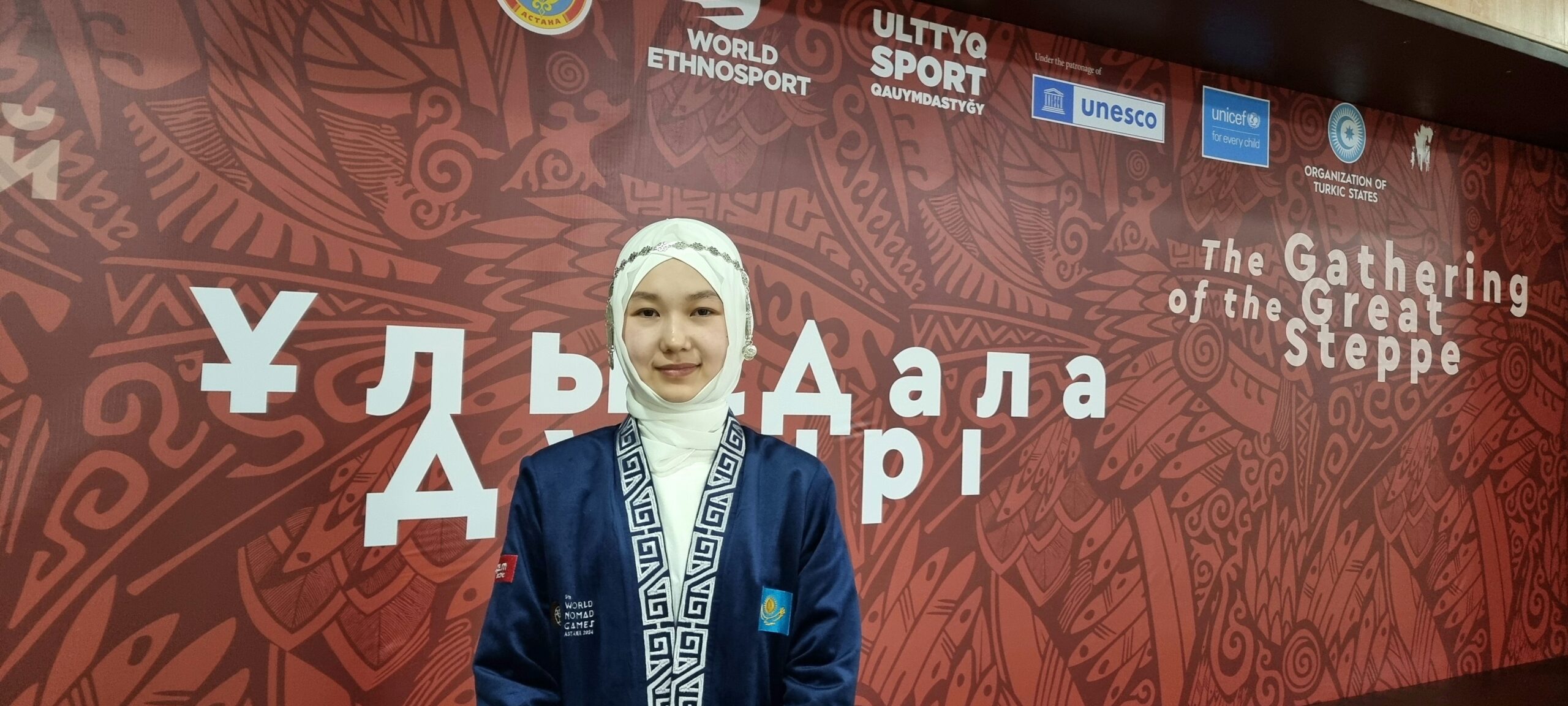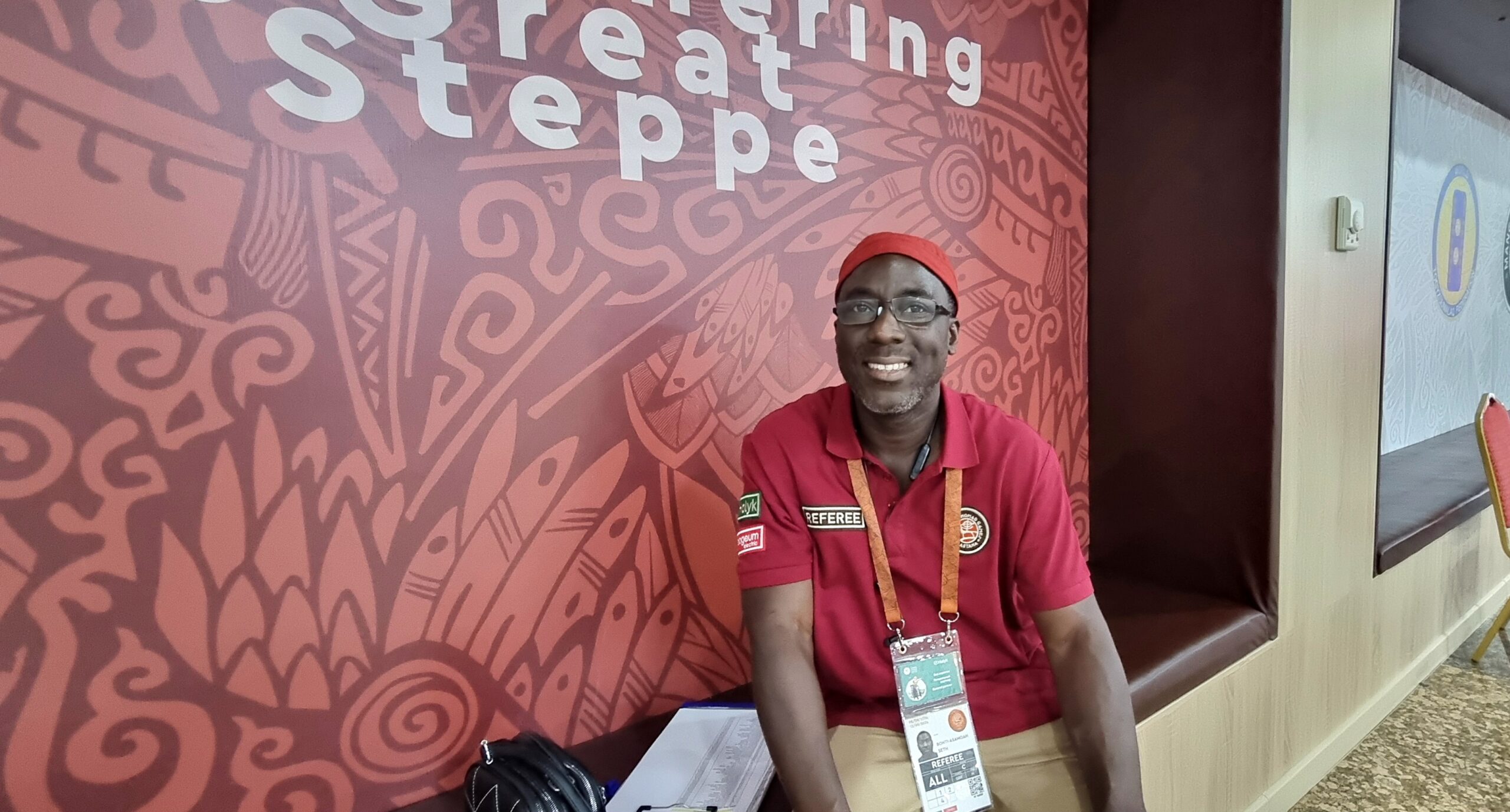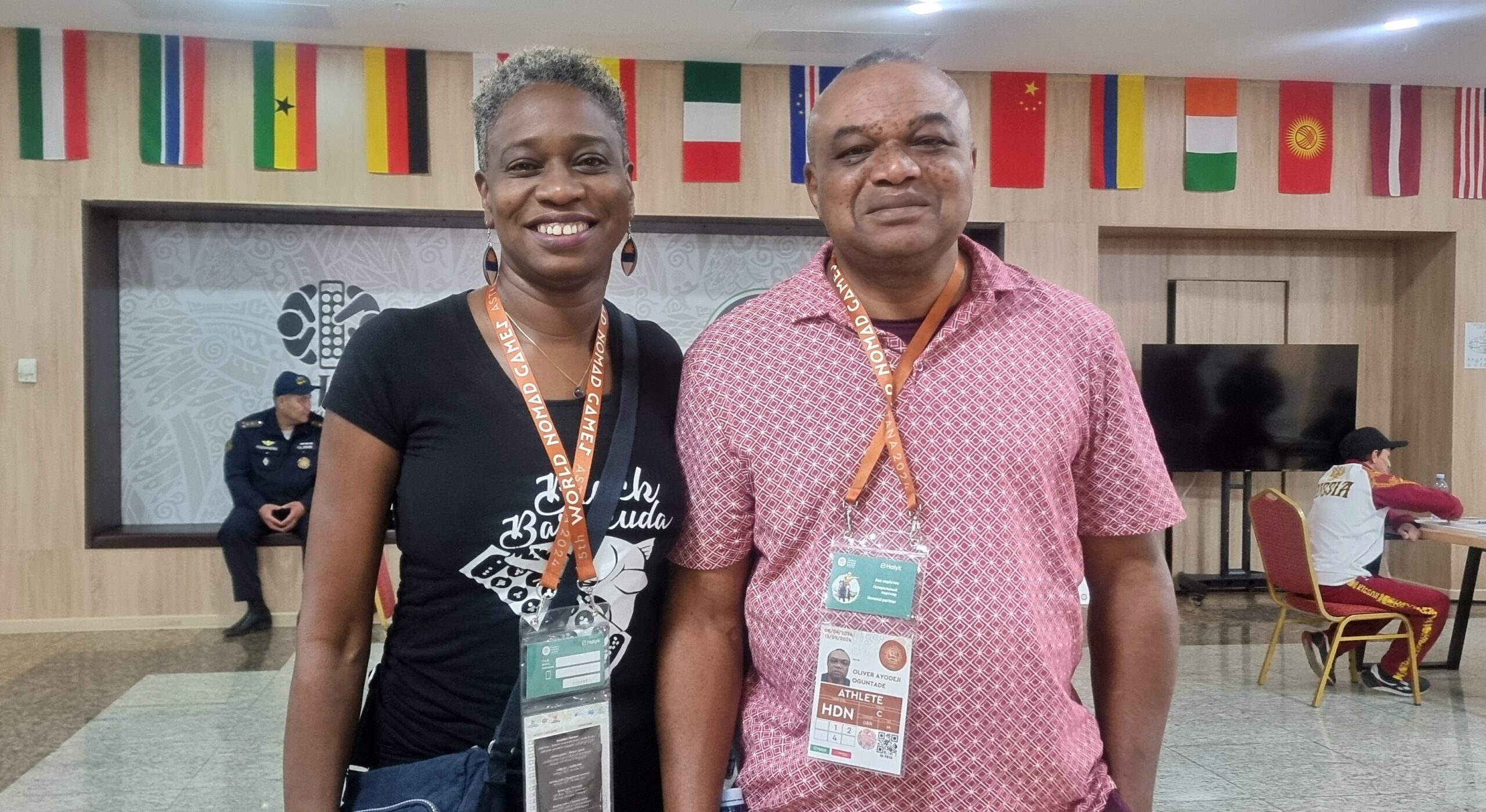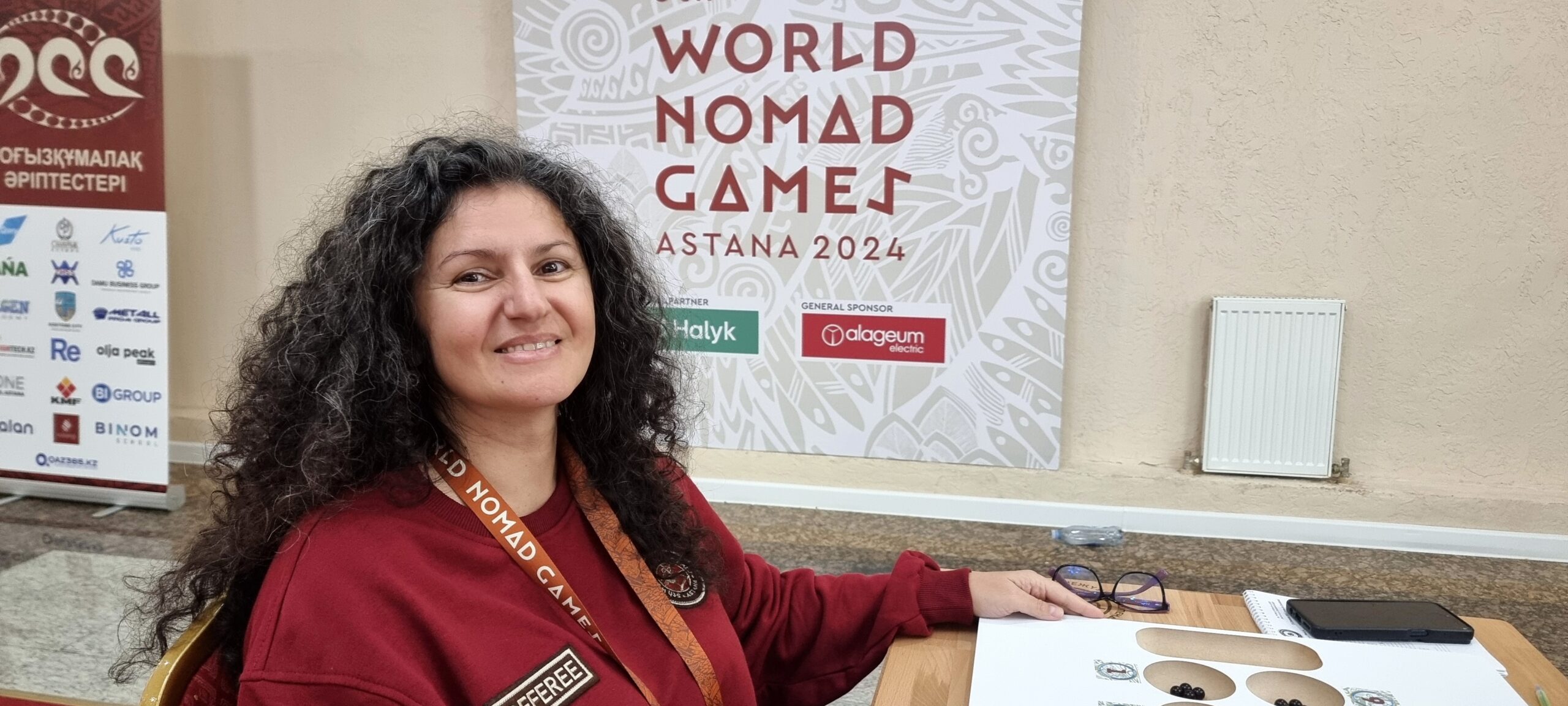ASTANA – Two Kazakh athletes earned medals in the women’s oware competition, an intellectual game rooted in West African tradition. Assel Daliyeva secured the gold medal, while Ansagan Kozhanasip took bronze.

The Kazakh player Ansagan Kozhanasip took silver in togyzkumalak tournament and bronze in oware game. Photo credit: The Astana Times
“I do not play this game professionally—only when I go abroad and participate in tournaments. This is my biggest championship. It was both challenging and interesting, with strong competitors. I believe those who play togyzkumalak can easily adapt to oware using similar logic,” Kozhanasip told The Astana Times.
One day before, Kozhanasip took silver in the togyzkumalak tournament. This marks her second time participating in the World Nomad Games (WNG). In 2018, she competed in Turkish mangala and earned second place.
The oware tournament was held on Sept. 11-12 as part of the fifth WNG, attracting players from around the globe who showcased their strategic skills.
Participants engaged in intense matches, demonstrating impressive skill and strategy. Spectators witnessed a thrilling competition as players vied for victory.
Seth Bonti-Asamoah, vice president of the World Togyzkumalak Federation, emphasized the strong level of competition.

Seth Bonti-Asamoah, the vice president of the World Togyzkumalak Federation highlighted the high level of competition in the oware tournament. Photo credit: The Astana Times
“The tournament here in Kazakhstan has been the strongest ever. For the first time, we had grandmaster players from Nigeria, Togo, and other countries. The Kazakh and Kyrgyz players have also become very strong, making this the toughest tournament we have had so far,” he said.
Bonti-Asamoah, who served as a referee for both togyzkumalak and oware games, was also responsible for bringing players from Africa, Europe, and South America.
Discussing the qualities needed for success in the game, he emphasized the importance of determination and strategic thinking.
“You must be able to calculate and strategize moves ahead of time, and you need to have the psychological insight to read your opponents—to anticipate their next moves and understand their playing patterns. A strong memory is also crucial,” he explained.
Bonti-Asamoah also shared his efforts to popularize the game.
“I represent the United Kingdom, where this game is not traditionally played. We are promoting it through animations, workshops, and introducing it to schools. In Ghana, where we are originally from, the game is a traditional part of daily life, but it is in decline due to the lack of a support program. We are working to reverse that trend and revitalize the game. The future lies in teaching it to young players in schools, so they can become the next generation of players,” he said.
Denise Francis from Antigua and Barbuda, an island nation in the Caribbean, emphasized the importance of preserving traditional games.

Denise Francis from Antigua and Barbuda with Oliver Ayodeji Oguntade, a player from the United Kingdom. Photo credit: The Astana Times
“Oware is our main heritage game. The Ministry of Tourism and Sports has been promoting it to get young people involved. It is especially helpful in improving children’s math skills. After COVID-19, they started promoting it more actively, and I got involved. I am thrilled to be here in Kazakhstan, learning about other board games like togyzkumalak,” she said.
Francis, who learned to play togyzkumalak just days before the tournament, competed in eight rounds, winning four and losing four. She noted the similarities between togyzkumalak and oware, which made it easier for her to pick up the new game.
Romanian player Claudia-Crina Balint, who also coaches the game, brought the youngest participants to the tournament.

Romanian player Claudia-Crina Balint. Photo credit: The Astana Times
“This is our second time in Kazakhstan. Last year, we were in Almaty for the World Togyzkumalak Championship for students, and this year we have ten children with us. It is amazing to meet so many cultures and exchange experiences. The people of Kazakhstan are wonderful,” she said.
Balint highlighted that the WNG celebrates the rich cultural diversity of nomadic peoples worldwide, showcasing traditional sports, games, and skills.
She noted that the inclusion of oware was a fitting tribute to the heritage and traditions of West African cultures.
